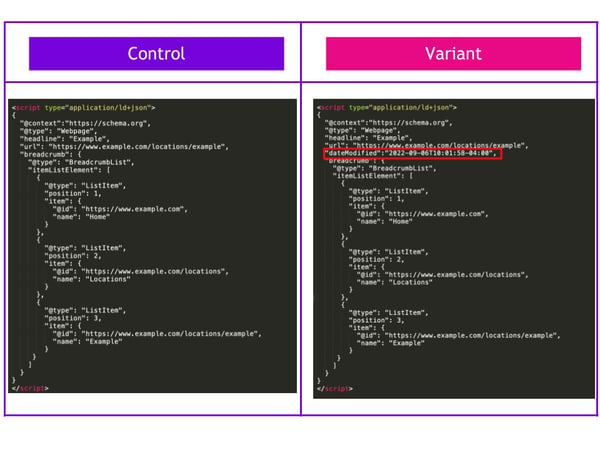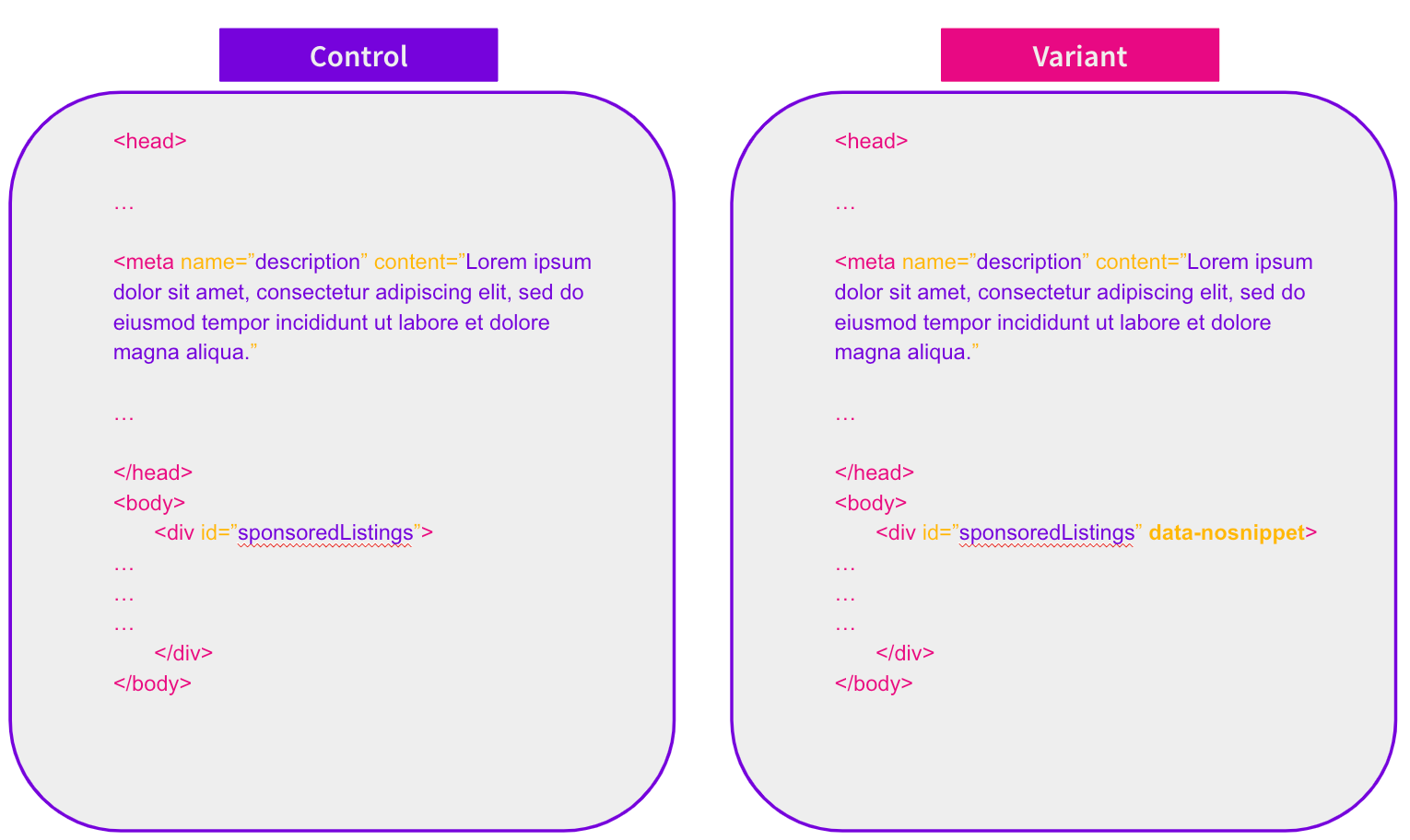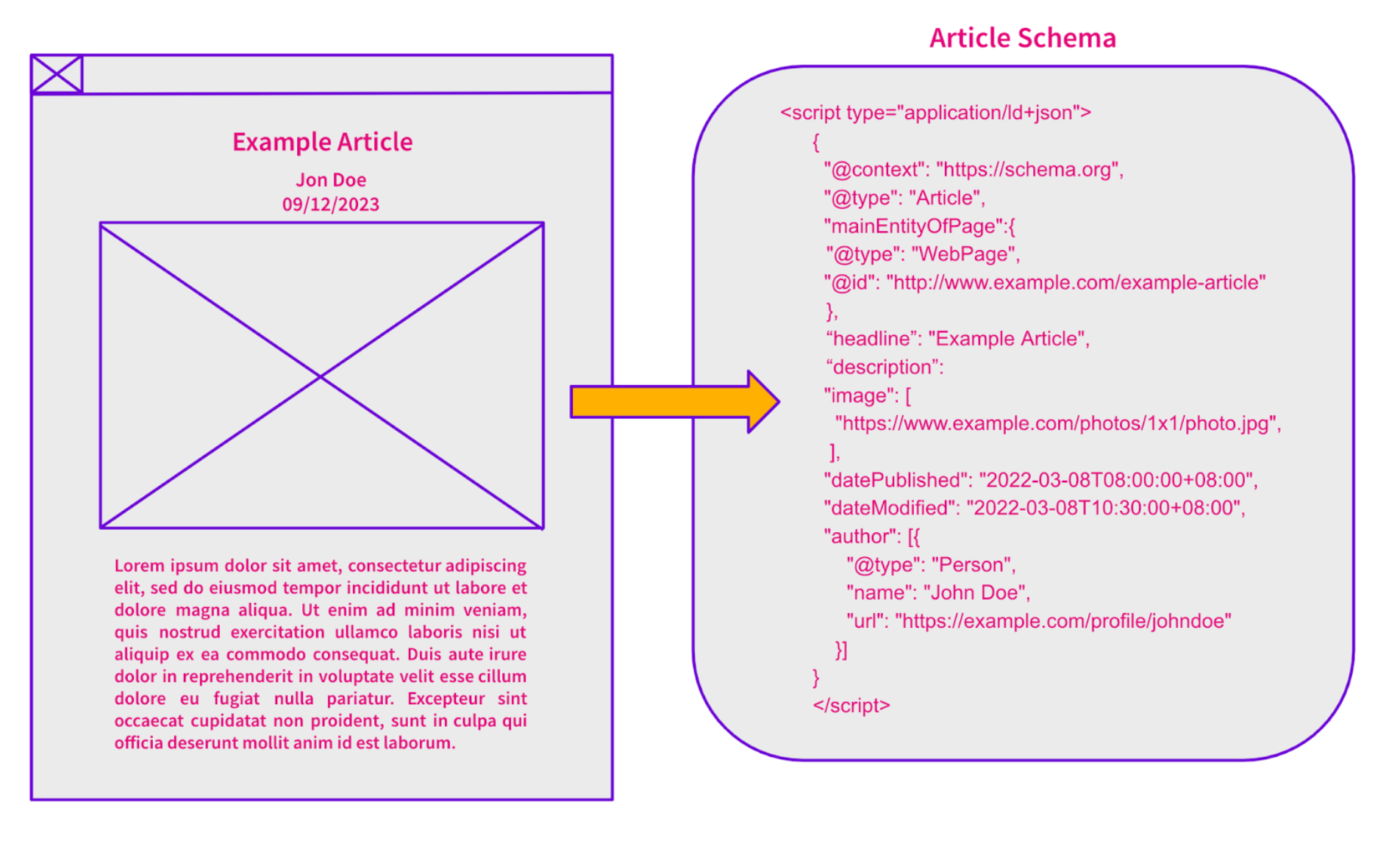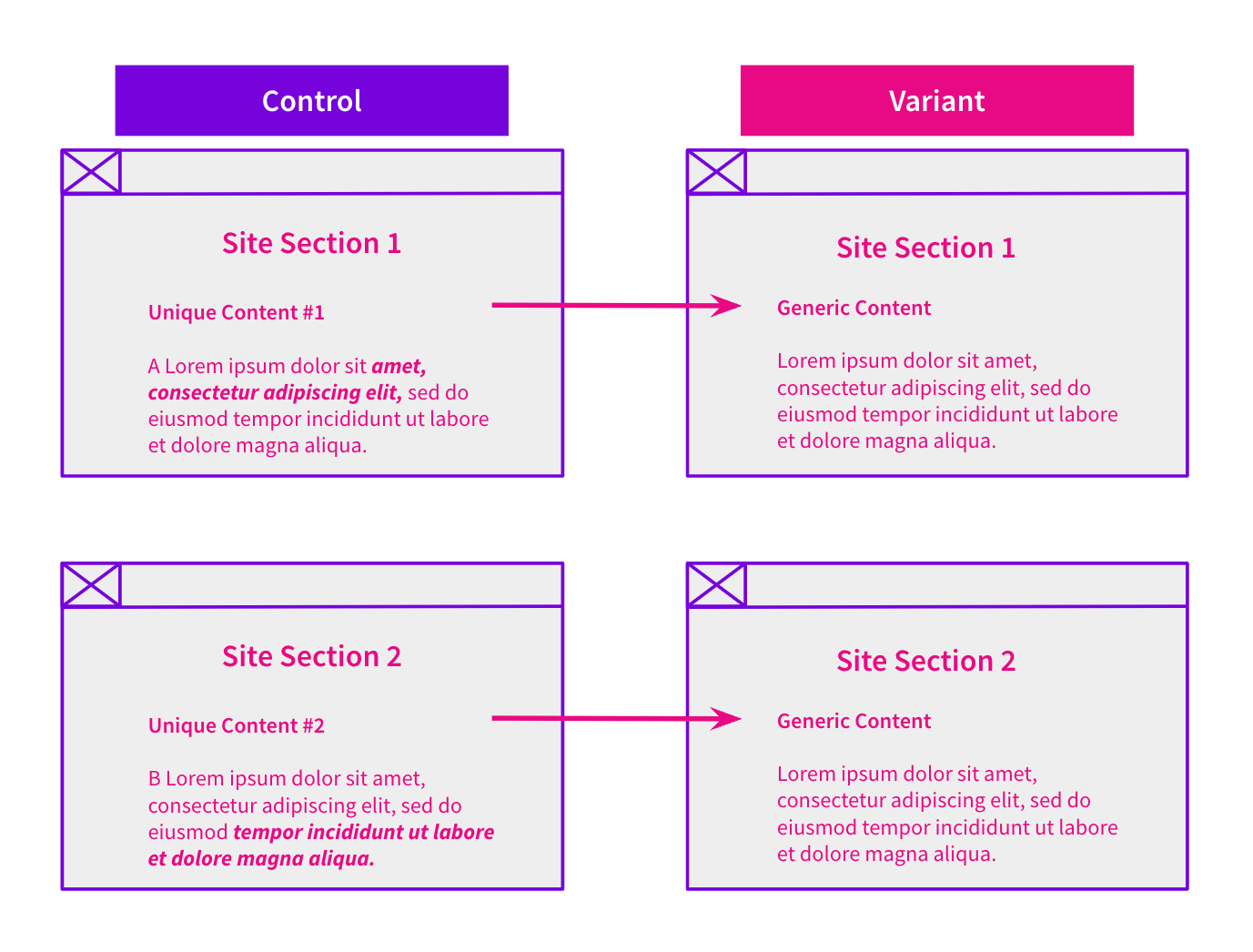Start here: how our SEO split tests work
If you aren't familiar with the fundamentals of how we run controlled SEO experiments that form the basis of all our case studies, then you might find it useful to start by reading the explanation at the end of this article before digesting the details of the case study below. If you'd like to get a new case study by email every two weeks, just enter your email address here.
This week we asked our Twitter followers what they thought the impact would be of adding dateModified into schema markup on location pages. Here’s what they thought:
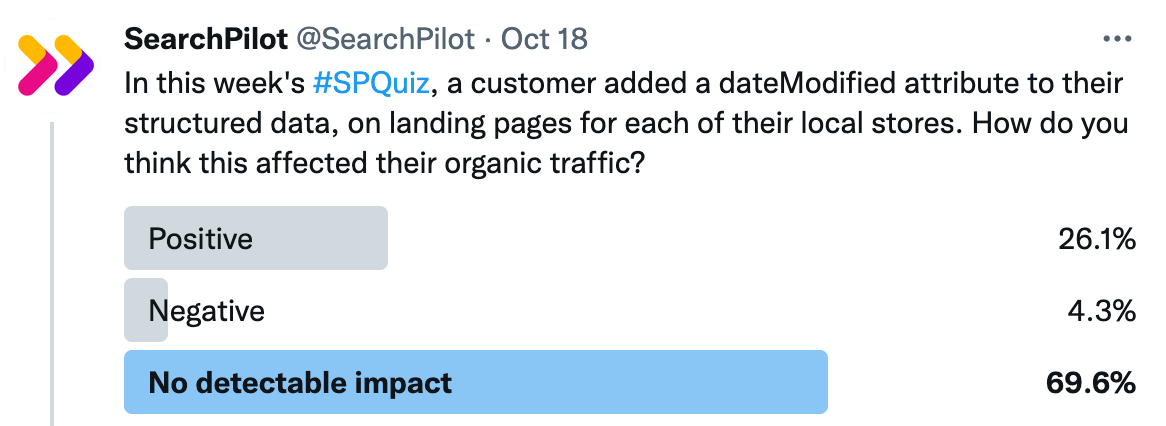
Most of our Twitter following thought this test wouldn’t have an impact on traffic that we’d be able to detect. Around a quarter thought it would be positive, and only a handful of people thought it would have a detrimental impact.
As it turns out, the test was indeed inconclusive. Well done to everyone who got it right! Read on to find out the details.
The Case Study
We have previously seen that freshness signals can have a substantial impact on organic traffic, and this week’s case study is on a similar theme.
This time, a customer wanted to test impacting freshness signals by adding a dateModified attribute to their structured data, on landing pages for each of their physical stores. They believed this could impact rankings by informing Google that the page is updated regularly. Furthermore, this change could potentially cause the modification date to be pulled into the SERP snippet.
This is what they changed:
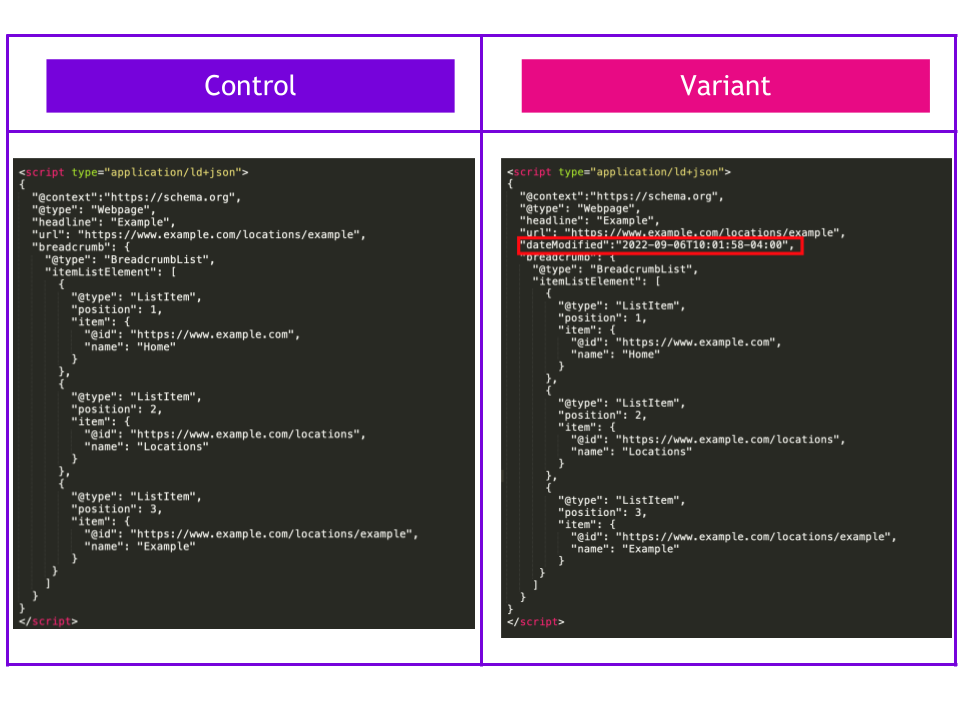
They already had WebPage schema on the page, including breadcrumbs. They just added a line to the JSON-LD markup to include the date the page was updated on.
This was the result:
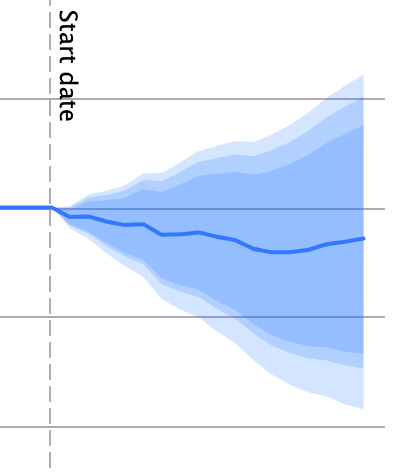
The test was inconclusive for organic traffic.
It turns out the schema was not enough to get enhanced search result snippets with the date included. If there was any impact on rankings, it wasn’t enough to translate to a measurable impact on organic traffic. To improve the chances of affecting the search result snippet, we recommend including the modification date visibly on the page and within the schema, which may be a follow-up test in this case.
To receive more insights from our testing, sign up for our case study mailing list, and please feel free to get in touch if you want to learn more about this test or our split-testing platform.
How our SEO split tests work
The most important thing to know is that our case studies are based on controlled experiments with control and variant pages:
- By detecting changes in performance of the variant pages compared to the control, we know that the measured effect was not caused by seasonality, sitewide changes, Google algorithm updates, competitor changes, or any other external impact.
- The statistical analysis compares the actual outcome to a forecast, and comes with a confidence interval so we know how certain we are the effect is real.
- We measure the impact on organic traffic in order to capture changes to rankings and/or changes to clickthrough rate (more here).
Read more about how SEO A/B testing works or get a demo of the SearchPilot platform.
